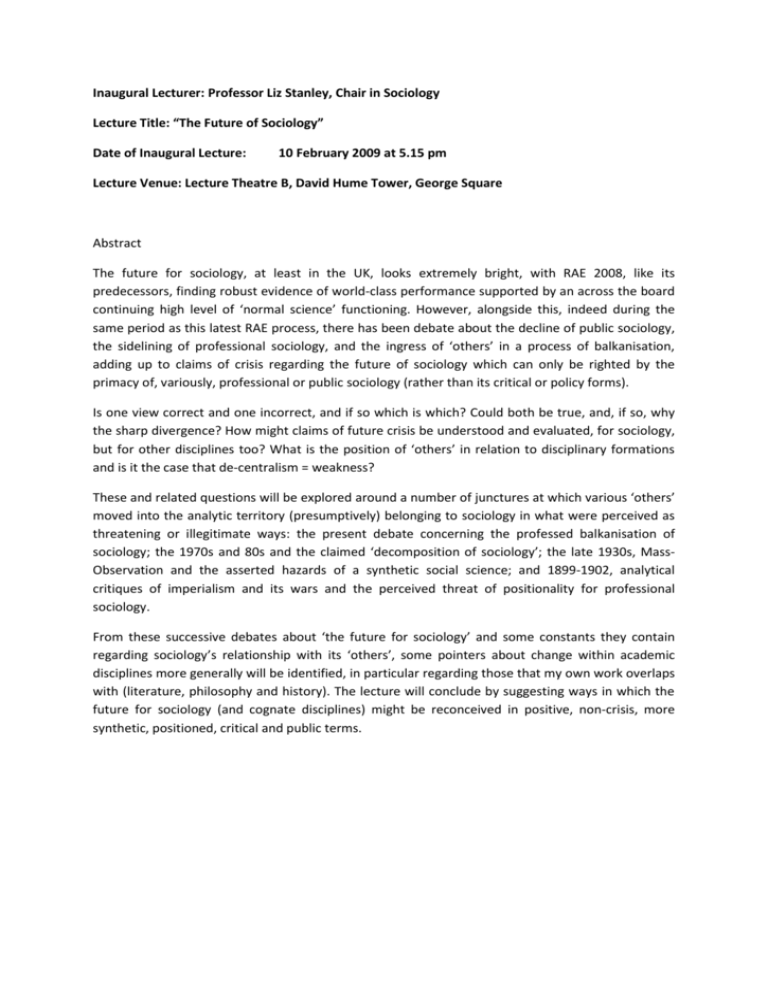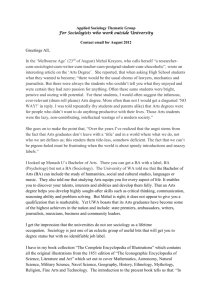Lecture abstract
advertisement

Inaugural Lecturer: Professor Liz Stanley, Chair in Sociology Lecture Title: “The Future of Sociology” Date of Inaugural Lecture: 10 February 2009 at 5.15 pm Lecture Venue: Lecture Theatre B, David Hume Tower, George Square Abstract The future for sociology, at least in the UK, looks extremely bright, with RAE 2008, like its predecessors, finding robust evidence of world-class performance supported by an across the board continuing high level of ‘normal science’ functioning. However, alongside this, indeed during the same period as this latest RAE process, there has been debate about the decline of public sociology, the sidelining of professional sociology, and the ingress of ‘others’ in a process of balkanisation, adding up to claims of crisis regarding the future of sociology which can only be righted by the primacy of, variously, professional or public sociology (rather than its critical or policy forms). Is one view correct and one incorrect, and if so which is which? Could both be true, and, if so, why the sharp divergence? How might claims of future crisis be understood and evaluated, for sociology, but for other disciplines too? What is the position of ‘others’ in relation to disciplinary formations and is it the case that de-centralism = weakness? These and related questions will be explored around a number of junctures at which various ‘others’ moved into the analytic territory (presumptively) belonging to sociology in what were perceived as threatening or illegitimate ways: the present debate concerning the professed balkanisation of sociology; the 1970s and 80s and the claimed ‘decomposition of sociology’; the late 1930s, MassObservation and the asserted hazards of a synthetic social science; and 1899-1902, analytical critiques of imperialism and its wars and the perceived threat of positionality for professional sociology. From these successive debates about ‘the future for sociology’ and some constants they contain regarding sociology’s relationship with its ‘others’, some pointers about change within academic disciplines more generally will be identified, in particular regarding those that my own work overlaps with (literature, philosophy and history). The lecture will conclude by suggesting ways in which the future for sociology (and cognate disciplines) might be reconceived in positive, non-crisis, more synthetic, positioned, critical and public terms.








